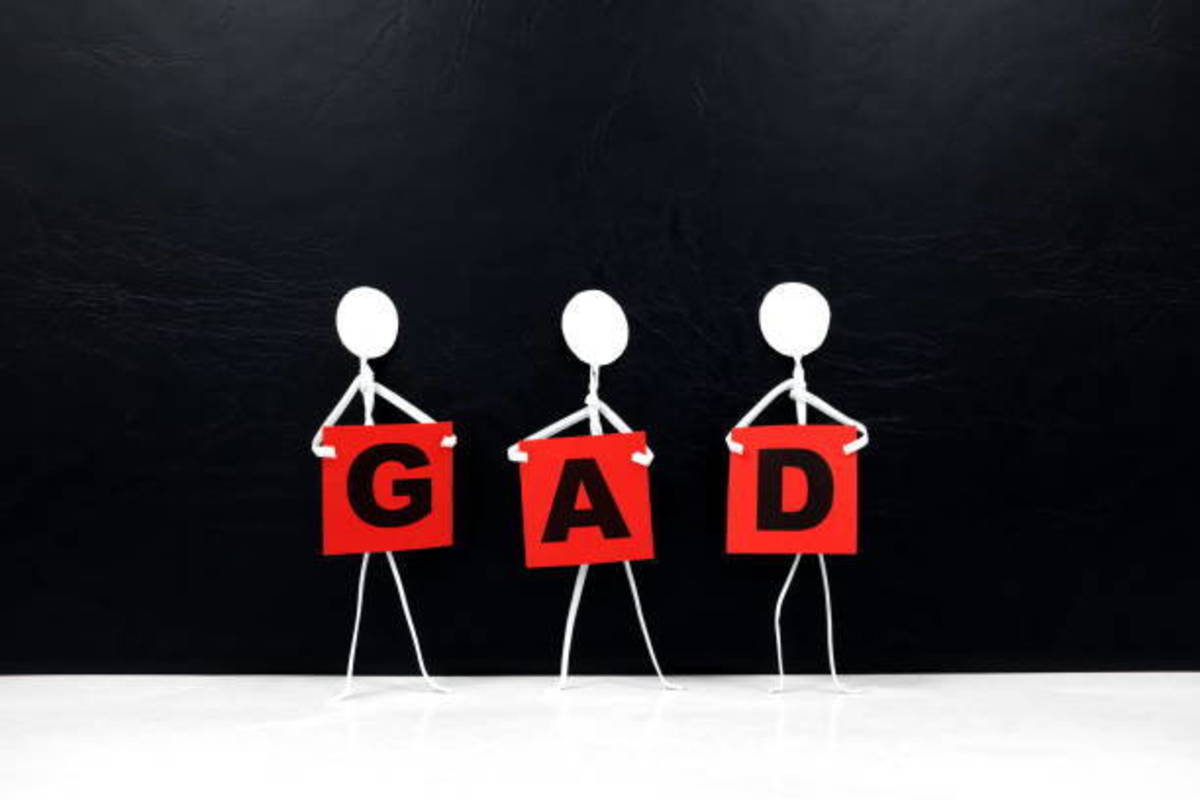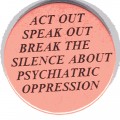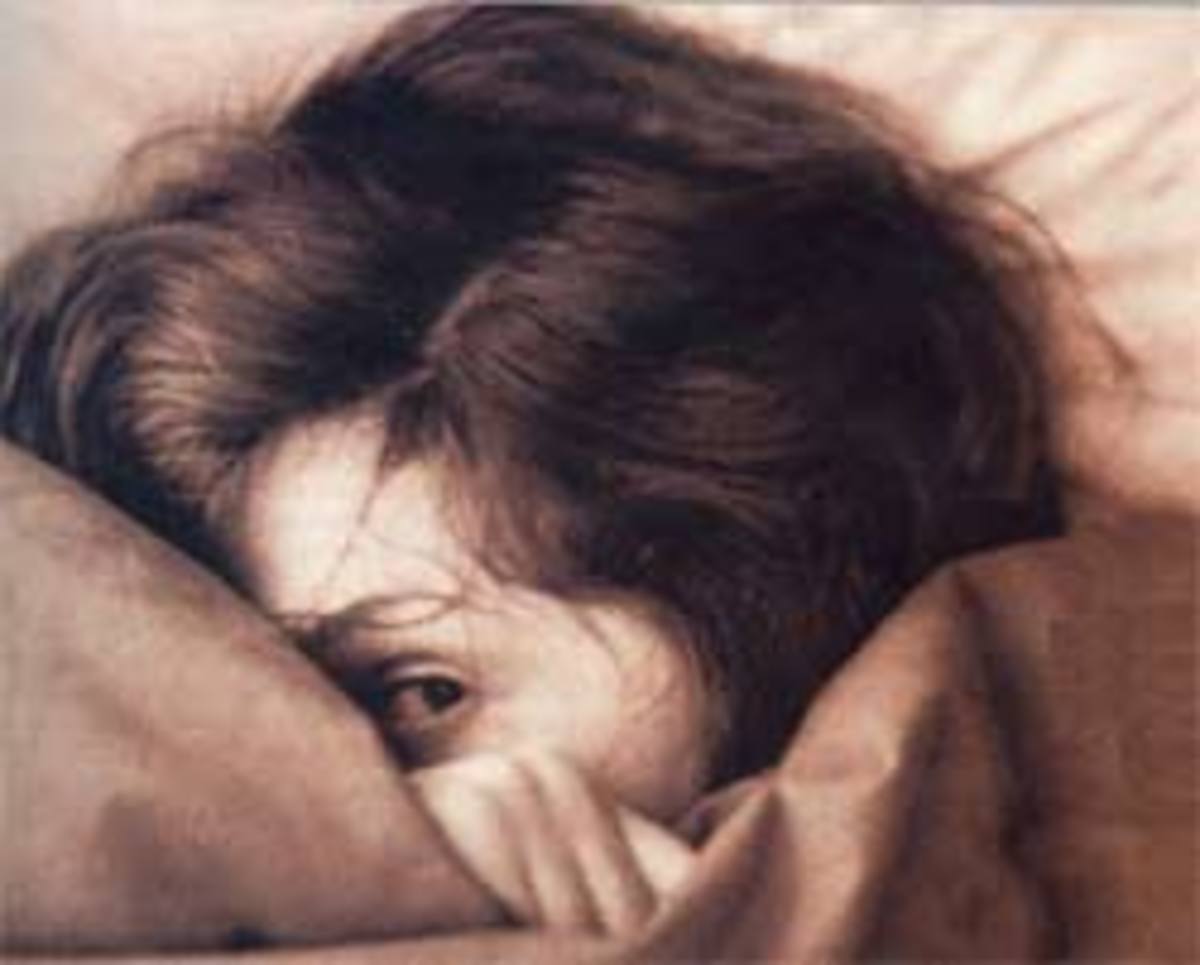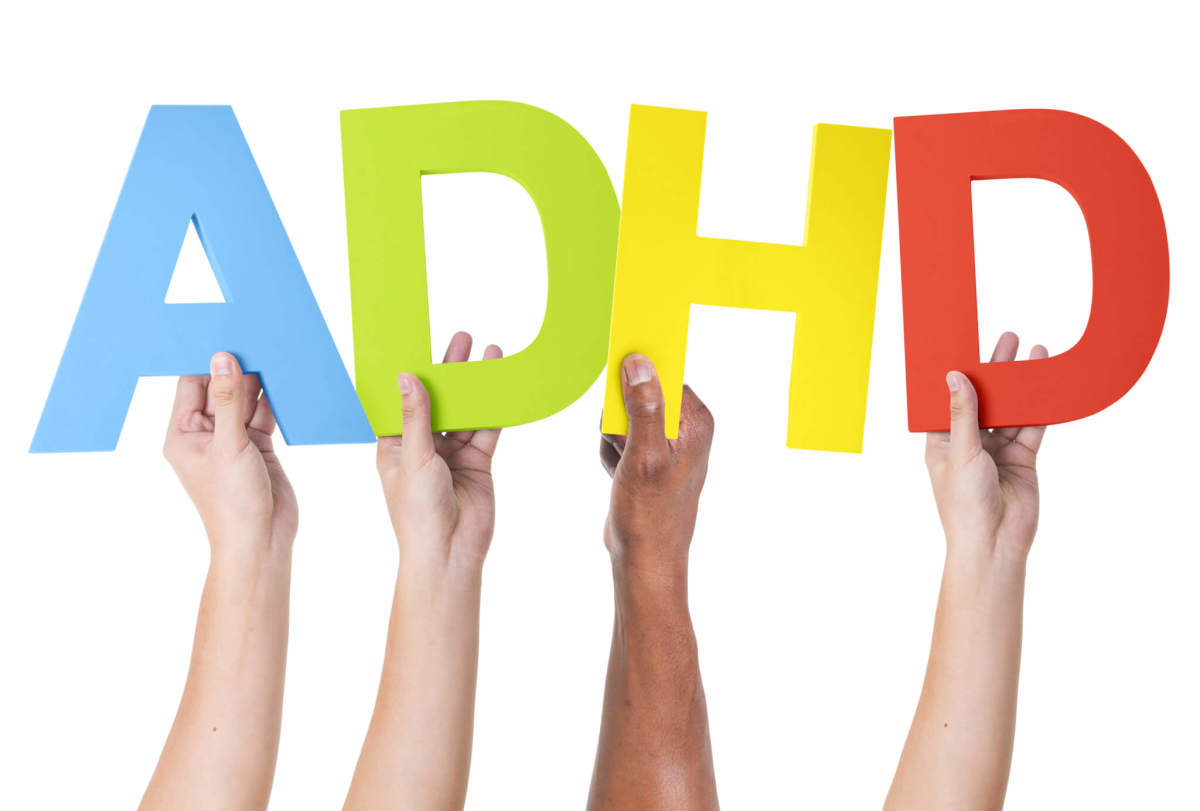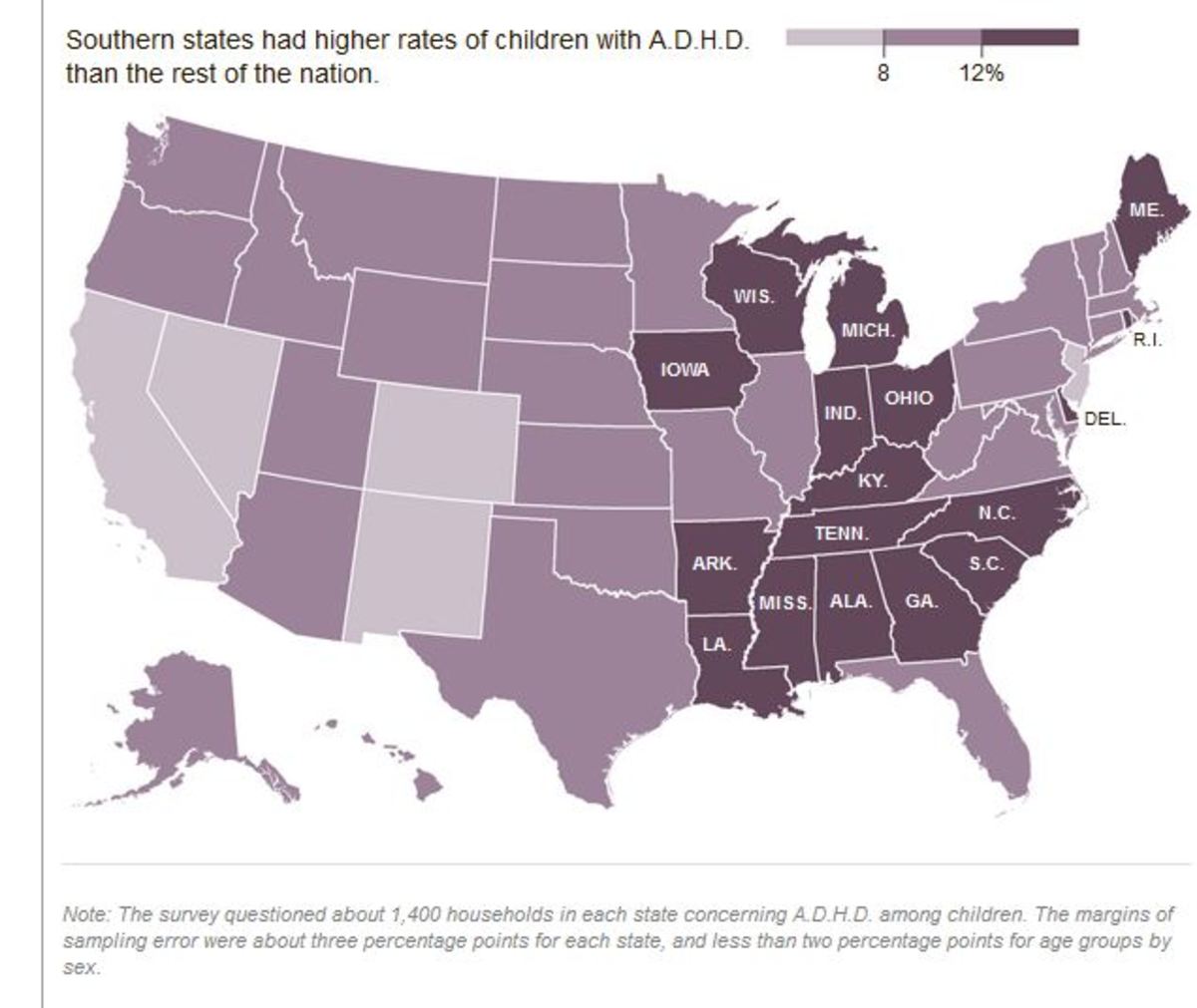Which Mental Illnesses Often Occur With ADHD?
ADHD and Comorbidity
Although attention deficit hyperactivity disorder (ADHD) can occur as a standalone condition, often people with ADHD receive additional mental health diagnoses. My own ADHD diagnosis came with four other conditions: bipolar I disorder, generalized anxiety disorder, obsessive-compulsive disorder, and anorexia nervosa.
Comorbid mental health concerns can complicate ADHD symptoms. In some cases, symptoms may overlap, and diagnoses could be missed due to similarities.
My diagnosis of ADHD was initially missed due to the presence of bipolar disorder, which shares a number of symptoms with ADHD.
Having come to terms with my diagnoses, I have learned how they link together. Though they cannot be untangled, they can be understood.

Anxiety Disorders
Most experience some form of anxiety during their lifetime, but sometimes it extends beyond normal worry or concern and becomes an anxiety disorder. For some, the effects of ADHD may cause anxiety, while in others, the anxiety disorder may be a co-traveler with ADHD.
Generalized anxiety disorder (GAD) and obsessive-compulsive disorder (OCD) are two anxiety disorders that frequently appear in those with ADHD.
Generalized Anxiety Disorder
GAD is characterized by persistent, extreme worrying and anxiety. This looks different in everyone: some may worry excessively or ruminate, while others may have panic attacks, or experience physical symptoms such as digestive issues.
Obsessive-Compulsive Disorder
OCD involves the presence of obsessions and compulsions. Some may struggle with obsessive or intrusive thoughts, while others may experience behaviors like checking or counting.
Similarities in Anxiety and ADHD
Both ADHD and anxiety can cause issues with attention and memory, as well as racing thoughts, sleep disturbances, and poor impulse control. Mood swings may also occur in both.
If anxiety escalates to extreme levels it may mask the symptoms of ADHD. This may lead to an initial diagnosis of anxiety and later discovery of ADHD.
Given that some of the symptoms of ADHD can be anxiety-provoking, it is not surprising that anxiety disorders are common in those with ADHD.
Given that some of the symptoms of ADHD can be anxiety-provoking, it is not surprising that anxiety disorders are common in those with ADHD.
Mood Disorders
Like anxiety disorders, mood disorders present with symptoms very similar to ADHD. Depression and bipolar disorder are two prominent mood disorders that may appear with ADHD.
Depression
Depression is characterized by a low mood or feelings of emptiness. It may cause physical aches, anxious thoughts, and sleep disturbances, as well as a loss of interest in normal activities.
Sometimes, depression can develop as a result of poorly managed or undiagnosed ADHD.
Symptoms such as forgetfulness, difficulty organizing thoughts, restlessness, and focus issues may also occur in both depression and ADHD.
Bipolar Disorder
The term bipolar disorder actually encompasses a group of illnesses: bipolar I disorder, bipolar II disorder, bipolar disorder not otherwise specified (NOS), and cyclothymia.
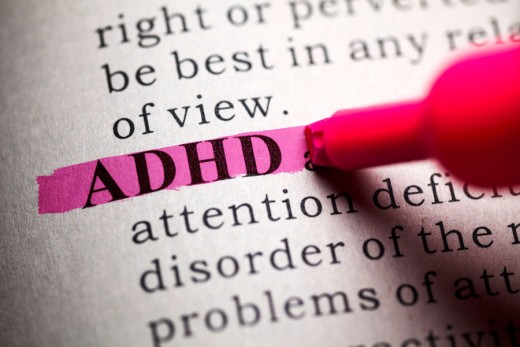
ADHD and bipolar disorder share a number of symptoms:
- Mood swings
- Impulsivity
- Memory issues
- Attention issues
- Sleep disturbances
- Feeling as though you are “driven by a motor”
- Hyperfocus (an aspect of ADHD that can occur in mania)
- Bursts of energy and restlessness
- Excessive talking, saying inappropriate things
- Impatience
- Poor decision-making
- Irritability and anger
- Impaired judgment
Additionally, both bipolar and ADHD are often associated with addictive behavior, such as substance use.
Why it's so Important to Talk About Our Depression
Eating Disorders
The main categories of eating disorders are anorexia nervosa, bulimia nervosa, binge eating disorder, and other specified feeding or eating disorder (OSFED).
Eating disorders are common in those with anxiety, and anxiety is common in ADHD. Factors such as compulsive rituals may be manifestations of an attempt to release anxiety.
In an individual with both ADHD and an eating disorder, the food obsession may be an attempt to focus their thoughts. And, behaviors such as over-exercise may be a way to curb hyperactivity.
People with eating disorders tend to be impulsive. Impulsivity is a common symptom of ADHD. Low self-esteem and sensitivity are also common in both ADHD and eating disorders.
For some, eating disorders may serve a purpose in that they are an attempt to self-medicate symptoms of ADHD and anxiety.
Since those with ADHD are prone to addictive behavior, this provides a clearer understanding of the connection between eating disorders and ADHD. Eating disorders are complex illnesses and are much more than behaviors, but that aspect does connect ADHD to eating disorders.
Navigating multiple diagnoses can be tricky. Though I do not have it all figured out, I’ve learned a few realities along the way that have contributed to my stability.
Managing Life With Multiple Conditions
Navigating multiple diagnoses can be tricky. Though I do not have it all figured out, I’ve learned a few realities along the way that have contributed to my stability.
Treatment Can Be Complicated
Sometimes the treatment for one illness can exacerbate another, such as the possibility of ADHD medication triggering mania in someone with bipolar disorder. That doesn’t mean the medication can’t be used at all, only that mood must be adequately managed.
I have been fortunate in that my ADHD medication hasn’t significantly impacted my mood. I mention this to illustrate that treating both ADHD and bipolar disorder can be done successfully.
Sometimes, Finding Relief and Stability Takes Time
Do not get discouraged if change does not happen right away. It takes time to find the right kind of treatment.
There may be instances in which one illness needs to be treated first, such as bipolar disorder. The mood episodes that come with bipolar disorder can be very destructive and need to be controlled immediately.
That does not mean the other diagnoses are less important or do not cause damage.
Sometimes, when you are dealing with multiple diagnoses, it is necessary to treat one first. In a person with bipolar disorder and ADHD, you would most likely stabilize mood first, which could also help alleviate other symptoms such as issues with focus, which in turn helps the ADHD.

ADHD and Mental Illnesses
Do you manage another mental illness on top of ADHD?
Lifestyle Changes and Therapy Can Go a Long Way
Initially, I scoffed at the idea of lifestyle choices like exercise, diet, and planning and organization making a real difference in my life, but that is exactly what they have done. This is something that can have impact across the board, regardless of diagnosis.
Sleep Is Vital
Just as I initially rejected the idea of making lifestyle changes, I also refused to buy into the idea that sleep mattered. That was because I’d lived with insomnia my entire life, and I only viewed it as something that had to happen, not something I particularly enjoyed.
But sleep has a huge impact on mood, focus, anxiety levels, and energy. Everyone should strive to get adequate sleep, but it is especially important for those living with mental illness.
Overlapping Symptoms Can Be Tough to Deal With
In my personal experience, I have found the symptoms that overlap have the strongest presence. For instance, impulsivity is a symptom that is present in each of my diagnoses, and it happens to be one of my biggest struggles.
In someone that has ADHD as well as a condition like bipolar disorder, they may find that the symptoms which overlap are present all the time instead of episodic with their moods, or vice versa.
It Is Not a Perfect System
Balancing multiple diagnoses is not easy and it may take time before you notice significant relief. Narrowing down the correct medications can be frustrating, and therapy techniques can prove difficult to implement in daily life.
But it is worth it to keep hanging on. Having multiple diagnoses does not mean it is hopeless. It may make things more complicated, but living a full, happy life is still possible.
Written by Charlie Kaplan

